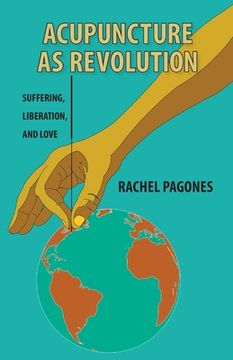Synopsis "Acupuncture as Revolution: Suffering, Liberation, and Love (in English)"
Many in the global West have heard something about acupuncture as a treatment for pain relief; they may even have learned of its use in treating opioid addiction. But few know that, in the early 1970s, acupuncture was employed as a means of social and political revolution by Black, Latinx, and radical left-wing activists, inspired by the barefoot doctors of Mao Zedong's Communist revolution. Led by Mutulu Shakur, a charismatic member of the Republic of New Afrika, these young and idealistic people learned to apply acupuncture in the gritty confines of Lincoln Hospital, in the South Bronx of New York. The derelict public hospital, long known as "the Butcher Shop," became an unlikely source of energy and hope as the activists successfully helped people from the community recover from heroin addiction. The acupuncturists - some of them recovering from heroin addiction themselves - employed a combination of needling points in the ear with counseling and "political education"; for instance, taking clients to witness the trials of political prisoners (people imprisoned for their political beliefs or activities). By the late 1970s, the activists' radical approach led to their forced removal from Lincoln. But Shakur and others formed the Black Acupuncture Advisory Association of North America (BAAANA) and founded a college to train a new generation of acupuncturists in the fine art of traditional Chinese medicine. The fundamental principal was healthcare as a human right. The goal was liberation of people oppressed by racism. The college had a short life; it was closed after an FBI raid in connection with the lethal armed robbery of a Brink's truck. Yet over three decades, the spirit of revolutionary acupuncture did not die, and neither did the issues that forced its rise, including drug addiction, racism, and social and health care inequities. Inspired by the radical acupuncturists of the 1970s, another group - the People's Organization of Community Acupuncture - founded the community acupuncture movement and took up the mantle of revolution. They, too, proclaim health care as a human right for people marginalized by society - and seek to give back that right through the art of inserting fine needles. Acupuncture as Revolution highlights a little-known intersection of acupuncture, leftist movements of the 1970s, and the global influence on healthcare of Mao's Communist revolution - and shows how the legacy of that explosive meeting lives on today.

